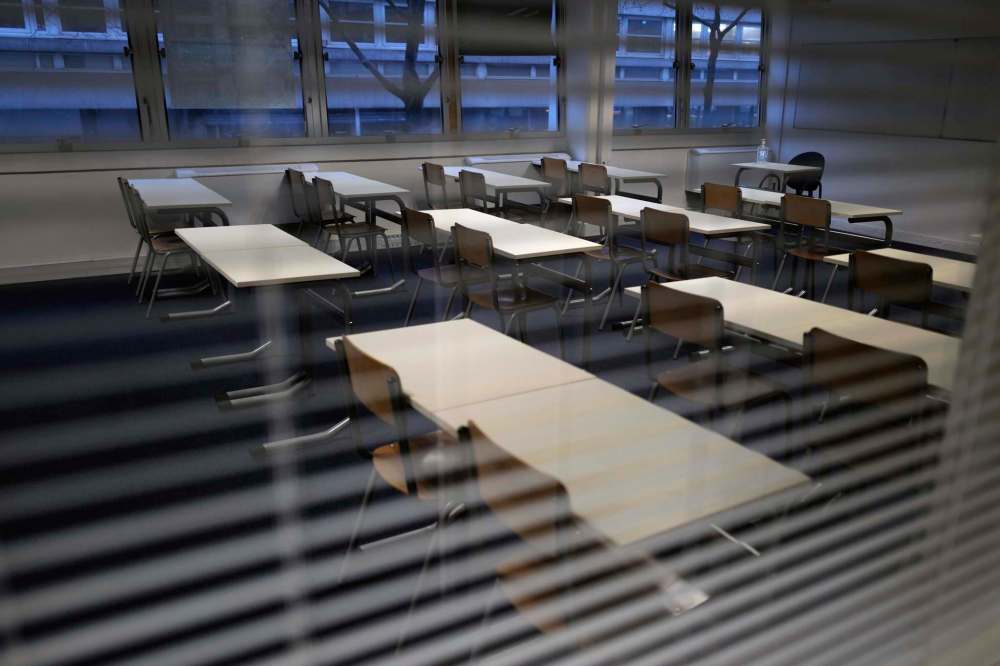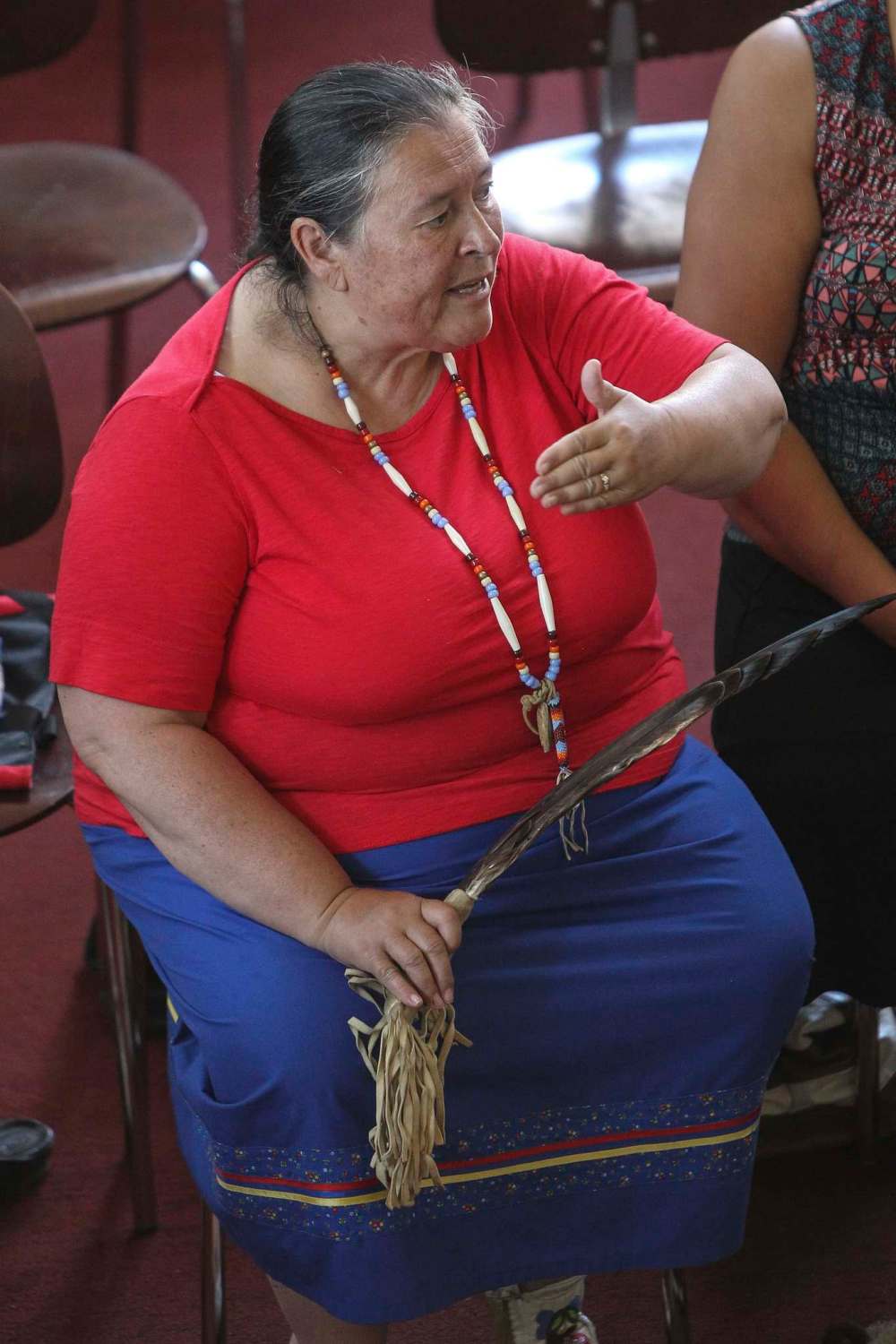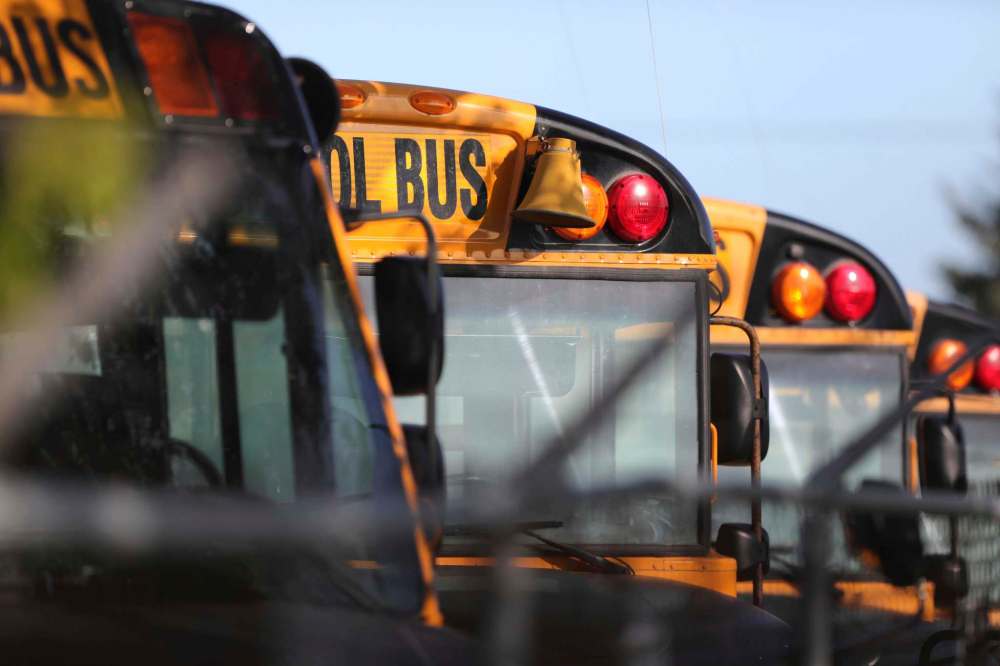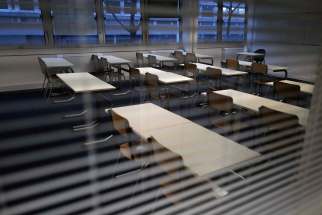Indigenous education will be set back decades by Tory bill
Read this article for free:
or
Already have an account? Log in here »
To continue reading, please subscribe:
Monthly Digital Subscription
$1 per week for 24 weeks*
- Enjoy unlimited reading on winnipegfreepress.com
- Read the E-Edition, our digital replica newspaper
- Access News Break, our award-winning app
- Play interactive puzzles
*Billed as $4.00 plus GST every four weeks. After 24 weeks, price increases to the regular rate of $19.95 plus GST every four weeks. Offer available to new and qualified returning subscribers only. Cancel any time.
Monthly Digital Subscription
$4.99/week*
- Enjoy unlimited reading on winnipegfreepress.com
- Read the E-Edition, our digital replica newspaper
- Access News Break, our award-winning app
- Play interactive puzzles
*Billed as $19.95 plus GST every four weeks. Cancel any time.
To continue reading, please subscribe:
Add Free Press access to your Brandon Sun subscription for only an additional
$1 for the first 4 weeks*
*Your next subscription payment will increase by $1.00 and you will be charged $16.99 plus GST for four weeks. After four weeks, your payment will increase to $23.99 plus GST every four weeks.
Read unlimited articles for free today:
or
Already have an account? Log in here »
Hey there, time traveller!
This article was published 18/03/2021 (1813 days ago), so information in it may no longer be current.
The Manitoba government’s Bill 64, the Education Modernization Act, is a 100 per cent step backwards for Indigenous education.
This bill turns back the clock by seeking to return to the same top-down, centrally controlled political and cultural ideology that led to the problems Indigenous learners face in the current system. It also threatens to undo everything that has been successful, such as the recent improvement to graduation rates and more culturally based learning.
For nearly four decades — since Indigenous communities have slowly taken back control over the education of their children — Indigenous education has been built on the local: specific Indigenous cultures, communities and languages.
Bill 64 targets local decision making by removing elected leadership and administration. It would replace superintendents and trustees with a single “director” who takes orders from people appointed by the provincial government.

The bill collapses divisions and directly affects urban and northern Indigenous students who attend off-reserve schools. It would create mega-districts where standardized testing is the barometer and relationships — the key to Indigenous education — will be even more marginalized.
While the bill does say Indigenous education should include “land-based learning” and “elders”, this is undermined by the fact local bodies have no say on how this will be delivered (in fact the province is proposing a provincewide “initiative”).
We don’t have to look far in the past to see what happens when politicians are in charge of the education of Indigenous peoples and what society should know about them.
I could easily make a residential school reference here, but instead I’ll cite the 1980s and 1990s (from my previous life as a teacher).
In the 1980s, there were only a handful of Indigenous teachers who amazingly believed that a racist school system in this province could be converted. These remarkable educational leaders included people such as Helen Settee, Debbie Beach-Ducharme and Myra Laramee. 
They fought battles against ignorant, non-Indigenous decision makers (mostly men), who were OK with textbooks that stereotyped Indigenous peoples and erased Indigenous histories and contributions.
These teachers changed minds, slowly but surely, by demanding Indigenous knowledge from communities be included.
For instance, you can only understand what the name Wînipêk means if you understand Cree and Anishinaabe communities around Lake Winnipeg. This kind of teaching is essential for Indigenous kids to undo the legacies of the past and for Canadians to understand the world around them.
Without an understanding of specific Indigenous cultures, you grow up ignorant – and often racist – in this place. For instance, it’s essential to know that Canada’s multiculturalism, democracy, and health care comes from specific Indigenous cultures, not the British or the French.
These teachers changed minds, slowly but surely, by demanding Indigenous knowledge from communities be included.
Without local control of Indigenous education, all that’s left is to collapse Indigenous complexity into the “Indian” – a singular category useful only to control, stereotype, and classify differing communities into one group.
We need local Indigenous leadership at every school level – and something beyond the parent advisory councils at every school, which are proposed by Bill 64. Those councils are dominated by people of privilege and wealth – two things lacking in Indigenous communities. Here in the city, for instance, I don’t know any parent advisory councils with a significant amount of Indigenous parents.
Currently, we have some Indigenous administrators, often in “associate superintendent” or another lead role. Nearly every school division has somebody in that role who ensures that local Indigenous education is delivered throughout schools.

Since Bill 64 will eliminate school divisions, these positions are “redundant” and Indigenous education is left to the provincially controlled Indigenous Inclusion Directorate.
Without Indigenous leads, the job of delivering Indigenous education will fall to principals, who are expected to “improve the achievement of Indigenous students” according to the bill (note that non-Indigenous students are left out).
If principals could incorporate Indigenous education into their schools, we wouldn’t have needed leadership in the superintendent office to help them.
This means the duty of delivering Indigenous education will fall to Indigenous teachers, who are already doing three times the job as every other teacher; educating students, colleagues, and probably that same principal on what Indigenous education means.
If principals could incorporate Indigenous education into their schools, we wouldn’t have needed leadership in the superintendent office to help them.
Speaking of principals, Bill 64 would remove them from the protection of the Manitoba Teachers’ Society. This means the legal protections afforded to educators who teach things such as “Indigenous lives and cultures matter” won’t be given to principals.
Bill 64 is a drastic undoing of nearly four decades of work in Indigenous education that was just beginning to produce improved graduation rates and cultural competency.
It’s not modern, but a very old, well-travelled path in Canada.
niigaan.sinclair@freepress.mb.ca

Niigaan Sinclair is Anishinaabe and is a columnist at the Winnipeg Free Press.
Our newsroom depends on a growing audience of readers to power our journalism. If you are not a paid reader, please consider becoming a subscriber.
Our newsroom depends on its audience of readers to power our journalism. Thank you for your support.











